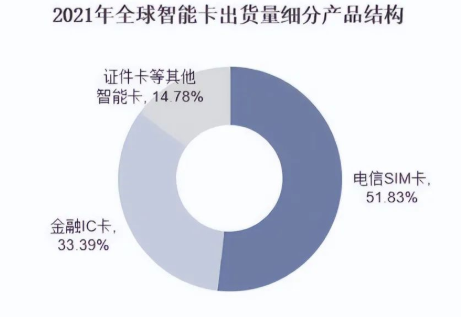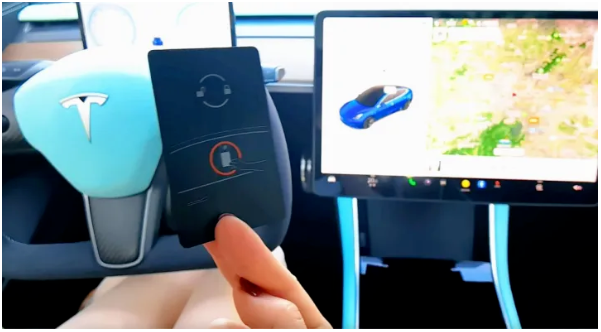Welcome to Shenzhen Sunshine Good Electronics Co.,Ltd.!
In recent years, a clear phenomenon is that when mobile phones have NFC functionality, the market space for traffic cards has been significantly squeezed. With the gradual popularization of the scanning function, smart cards have lost a certain voice in the payment field.
However, in the era of rapid development, the most important thing is opportunity. It is understood that smart card companies are currently embracing changes and looking for new markets, and the author knows two things: one is from the new outlet endorsed by the state, and the other is from the exceptionally hot car market in the past two years. The former is digital RMB, while the latter is digital car keys.
At present, some enterprises are embarking on layout, while others have continuously expanded their market share.
"No jamming" or false proposition under the new air outlet
According to relevant data, the largest market for smart card shipments is telecommunications SIM cards. In 2021, the global telecommunications SIM card shipment volume was 4.9 billion, accounting for 51.83% of the total shipment, followed by financial IC cards, with 3.25 billion, accounting for 33.39%.

Smart card shipments in 2021
Source: Eurosmart (European Smart Card Industry Association)
It can be found that although the shipment volume of SIM cards is not as large as that of telecommunications, the demand for smart cards in the financial industry has always been strong, and there is now a stronger growth momentum - digital currency.
It should be noted that the digital currency mentioned here is not a network virtual currency, but a new concept for central banks to enable finance and payment, which is another innovation after cash and electronic payment.
At present, not only foreign countries, but also the Central People's Bank of China are vigorously promoting digital currency, namely, digital RMB. According to relevant data, by the end of 2021, China had more than 8.0851 million digital RMB pilot scenarios, supporting 3.625 million digital RMB merchants, and trading amounts of 87.565 billion yuan.
Compared to traditional financial IC cards, the hardware facilities of digital RMB are very different in terms of function or the industrial chain involved behind them. And as a hard wallet (also known as a smart card) for storing digital RMB, its requirements for technology, security, and other aspects are also different from traditional IC cards.
Under these different supports, the digital RMB industry has created new market space for smart card companies.
It is understood that at the 2022 Winter Olympics, digital RMB hard wallets once became a necessary item for foreign friends. Moreover, in addition to being used for cash payments, China's third generation social security card pilot has also been superimposed on digital RMB hard wallets, and major state-owned banks are successively launching hard wallet-based products.
For smart card companies, the key to deploying digital RMB is the stability of market growth. After all, in China, digital RMB is an imperative project and a mission that must be completed. On the one hand, it is to fill the inconvenience caused by the lack of cash role, and on the other hand, it is also to ensure the security of cross-border payments.
Therefore, in the new era of digital RMB, "card free" may have become a false proposition.
In addition to the financial industry applications mentioned above, which have a relatively high market share, the booming automotive industry in recent years has also spawned another market for smart cards - digital car keys.
Sense of technology+ritual
Only with a card is easy to handle
As we all know, the development of new energy vehicles in the past two years can be described as unstoppable. According to relevant data, the global sales of top 20 new energy vehicle brands reached 7.5 million units in 2022, and the global sales of new energy vehicles increased by 61.6%. The market trend is expanding. This is even more prominent in China. According to CCTV reports, China has ranked first in the world in the production and sales of new energy vehicles for 8 consecutive years.
For new energy vehicles, the most important thing is a sense of technology. Nowadays, many car manufacturers are optimizing human-vehicle interaction schemes to provide owners with a more fashionable and convenient driving experience.
At the same time, with the attention paid by car owners to technology and fashion, as well as the digital upgrade of the entire vehicle and its surrounding accessories, as the first scene of human-vehicle interaction, opening the door has become the first part that needs to be upgraded, and card keys have emerged as the times require.
Taking world-renowned car manufacturers Tesla and BMW as examples, relevant card key products have achieved good sales.

Tesla Smart Card Application (Image Source: Network)
Therefore, for smart cards, this is also a market worth exploring.
Even though there is currently a digital car key solution for car machine linkage - unlocking the door with a mobile phone, the ritual sense represented by the card, as well as its portability and lightweight characteristics, are not satisfied by mobile phones.
epilogue
In fact, "card free" is just a microcosm of a larger environment. For both smart card companies and companies that are deeply engaged in other products, only by embracing innovative technologies and participating in them, and seizing every wave of the era, can they have the opportunity to ride the wind and go further.
http://www.sz-sg.com.cn/iinf/437.html